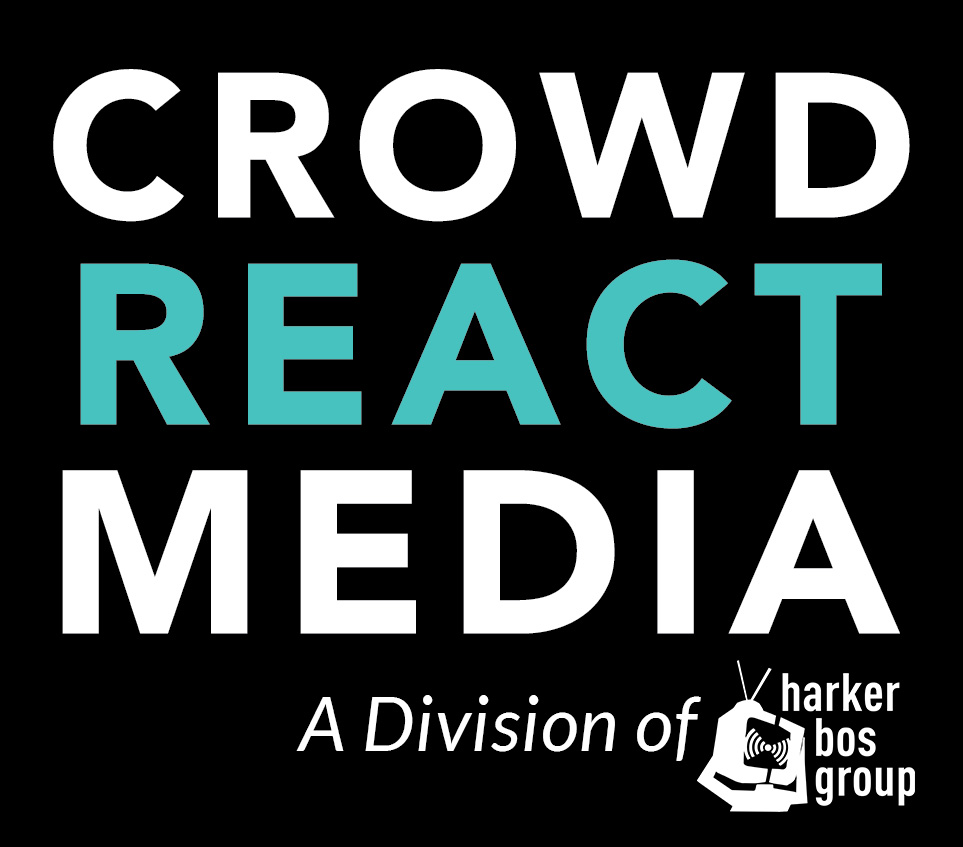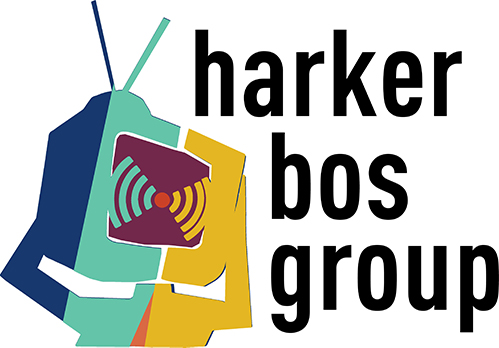Weekly Roundup – Week of February 20th, 2023
Sports Media & Sports Betting News
NC Lawmakers Roll Out New Bill To Legalize Sports Betting, Gov. Cooper Says It's Likely To Pass This Week
"State lawmakers will file legislation this week to legalize mobile sports betting in North Carolina, as Gov. Roy Cooper (D) thinks it will have a better chance of passing this year.
Rep. Jason Saine (R-Lincoln) said the bill in the state House of Representatives will be substantially similar to a bill that failed last year by just one vote. However, this time he’s confident it will have enough support in the House to pass.
“This will be something that’s legitimate in the state, something that we can see. We can put some transparency on it and see where the money moves. I think that’s best for everybody,” said Saine.
Gov. Cooper has been a supporter of legalization and spoke to reporters about the prospects of the bill passing this year as he prepared to celebrate this weekend’s Stadium Series where the Carolina Hurricanes hosted a nationally televised outdoor game at Carter-Finley Stadium.
“I think it’s gonna pass from what I hear. We’re working with trying to get good legislation that’s fair to the taxpayers but also recognizes something that’s going on anyway,” said Cooper. “We might as well get a benefit for our schools and our state out of it.”
When the bill came up for a vote last year it had bipartisan support and bipartisan opposition."
A Missed $140 Million Payment Sends Sports TV Negotiations Into Overdrive
"Diamond Sports Group, which owns and operates 19 regional sports networks that televise about a third of all M.L.B., N.B.A. and N.H.L. games, said on Wednesday that it would not make a $140 million interest payment on its nearly $9 billion of debt, setting the stage for a possible bankruptcy filing next month and building pressure for the leagues and others amid a sea change in how fans watch sports throughout the United States.
The missed payment triggered a 30-day grace period, and Diamond Sports said on Wednesday that it intended to keep talking with the leagues and its creditors to come up with more favorable arrangements to televise games during that time.
The sports networks, which are branded Bally Sports and include channels like Bally Sports Florida and Bally Sports San Diego, exist mainly because Diamond Sports pays hefty fees to teams for the rights to show their games locally, and cable customers pay fees in their cable bills that keep the channels afloat. The company owes teams about $2 billion in rights fees this year, according to its most recent financial filing, and the fees have continued to increase even as fewer Americans stick with cable television, meaning less revenue for Diamond Sports.
The missed payment won’t have immediate effects on the production of game broadcasts, with the N.H.L. and N.B.A. in the middle of their seasons, but if Diamond Sports enters bankruptcy or stops making payments without a clear agreement to dig out with its creditors and the leagues, it could throw the games into television limbo and threaten one of the biggest moneymakers for sports teams that are used to spending big on athletes, coaches and others.
...
For decades, regional sports networks were some of the most lucrative channels in the cable bundle. Ten years ago, 100 million households in the United States subscribed to a cable or satellite television package, and nearly every one of those households received one or more regional sports networks, like YES Network in New York City or NBC Sports Bay Area in San Francisco, in those packages. The fees that households paid for those channels, a few dollars a month, were and remain among the highest paid for any channel.
...
Some of that dynamic is being upended. Only around 70 million U.S. households now pay for some form of television, and the rate of cord-cutting is only accelerating. Some television operators, like Dish Network, have dropped some regional sports networks from their offerings, believing it was not worth increasing the price of receiving television for the large percentage of households who watch little or no sports."
Super Bowl Measurement - How Nielsen, ISpot And Samba Numbers Diverge
"It’s hard to declare a winner in the Super Bowl of audience measurement, but the competition is definitely fun to watch. But just like in the real game this year, questions about the fairness of the referees may linger well after the game is over.
All this comes as TV sports audience measurement—which ultimately determines payouts for the most lucrative ad inventory on TV—faces growing scrutiny. So getting the numbers fast—and right—for the Super Bowl is important.
Samba surprisingly was the first to report numbers this year, albeit only at the household level. The early audience numbers from Nielsen and iSpot.tv weren’t as close as they appeared on the surface. And on the ad effectiveness front, while The Farmer’s Dog may have had the most loved and watched ad in the Super Bowl, it didn’t do so well at pushing people past the goal line of online search. On the other hand, surprise entrant Temu did spectacularly at spawning search.
...
A surprise winner in the race to report first, Samba TV put out audience numbers on Monday morning, albeit with less data than what followed from Nielsen and iSpot, with households only and no co-viewing to provide a total number of people watching. Samba reported 36.7 million U.S. households watched the Super Bowl at some point on Sunday night, up slightly from 36.5 million last year.
That doesn’t include any mobile or out-of-home viewing, or total persons, since Samba’s nationally weighted household panel of 25 million connected TVs doesn’t include co-viewing measurement.
By Monday morning, Samba also had household viewership numbers for individual ads, even if it was waiting to release its full list until later in the week. Spoiler alert: The Farmer’s Dog won here, just as it did in the USA Today Ad Meter ratings. Doritos, Molson Coors, the “Creed III” promo and CrowdStrike rounded out the top five in most viewed per Samba.
Nielsen wasn’t scheduled to report audience numbers until Tuesday, but Fox jumped the gun by reporting preliminary numbers early Monday evening showing an average viewership of 113 million. That number encompasses household and out-of-home viewing, a Nielsen spokeswoman said. And Fox said it’s the largest Super Bowl audience since 2017.
Fox’s early release isn’t bad for Nielsen, given that waiting until Tuesday has helped fuel questions about whether Nielsen One Ads, the measurement giant’s new product merging big device data sets with its panels, will be able to deliver overnight numbers. At least in this case, Nielsen got preliminary numbers out to the public less than 24 hours after the game ended.
Overall, Fox reported Nielsen data showing 182.6 million people watched all or part of the game on Fox and Fox Deportes.
The “final” numbers from Nielsen, which came late Tuesday, didn't make much difference. It had the same 113 million viewers on Fox and Fox Deportes, though the historical data from Nielsen suggests it was actually the biggest Super Bowl audience since 2015, rather than the 2017 game as Fox reported."
News & Political Media News
Trump Beats Biden, Harris In 2024 Match-Ups: Poll
"Former President Trump leads President Biden and Vice President Harris in hypothetical 2024 match-ups, according to a new Harvard CAPS-Harris Poll survey released Friday exclusively to The Hill.
Forty-six percent of those surveyed said they would vote for Trump over Biden if the 2024 election were held today, compared to 41 percent who said they would support the president. Thirteen percent were unsure or didn’t know.
By a wider margin, 49 percent of respondents would vote for Trump and 39 percent would vote for Harris if the 2024 race were between the two. Thirteen percent were unsure or didn’t know.
Trump continues to be the strong favorite among a competitive Republican field, according to the poll. In a hypothetical eight-way primary, 37 percent of respondents would vote for Trump, while 19 percent would back Florida Gov. Ron DeSantis (R), whose support has dropped from previous polls.
Seven percent would vote for former U.S. Ambassador to the United Nations Nikki Haley, the second notable Republican to officially launch a presidential bid and first to challenge Trump. The poll found that Haley did gain some momentum after what many considered to be a successful presidential campaign announcement this week, rising to third place in a potential GOP primary that does not feature Trump."
What A Podcasting Industry Slowdown Means For Advertisers
After years of exponential growth and multimillion-dollar dealmaking, podcasting is beginning to feel the crunch faced by other tech industries that grew rapidly during the earlier stages of the pandemic. Major platforms that invested heavily in the space have reportedly begun slowing their momentum, freezing budgets and even beginning layoffs.
Spotify last month announced plans to cut about 6% of its employees, while chief content and advertising business officer Dawn Ostroff left the company — two moves that suggest to industry watchers that its $1 billion-plus bet on podcasts was not paying large enough dividends.
Still, podcast listening time continues to rise, as does U.S. podcast advertising revenue, which passed the $1 billion mark in 2021 and is predicted to surpass $4 billion in 2024, according to the Interactive Advertising Bureau (IAB). The pinch felt at companies that perhaps overextended into podcasts tells only part of the story for a channel that has still not hit its full potential.
“Podcasting has gotten to a point of growth and maturity, but it’s still evolving and growing,” said Elli Dimitroulakos, head of innovation for podcast platform Acast. “It’s not going away, it’s carving its own path and it’s trying to break out from underneath audio and stand on its own, because it’s outperforming every medium including influencer.”
Conservative Dallas Media Firm Strikes Deal To Become Spanish Speaking TV News Competitor
"The conservative Spanish-language news startup Voz Media struck a deal Monday to buy Spanish Broadcasting System’s MegaTV business for $64 million.
It’s the first big-ticket purchase for Voz, a Dallas-based media company founded in early 2022 that hopes to scale into a national competitor. The company aspires to rival Spanish-language news giants Univision and Telemundo, organizations that have been market leaders for decades.
Voz’s broadcasts are aimed toward Spanish-speaking Latinos, with a pledge to offer content that CEO Orlando Salazar describes as “right-of-center.”
Salazar has lived in Dallas for over 20 years and was the former vice chair of the Republican National Hispanic Assembly, one of the largest conservative Hispanic organizations in the country with more than 65,000 members.
Authors on Voz’s digital site include members of conservative Hispanic outreach groups, members of former President Donald Trump’s administration and the America First Policy Institute, a think tank founded in 2021 to carry on Trump’s policy agenda.
“There’s very little objectivity in media these days,” Salazar said.
Salazar, who also has a commercial real estate development firm and a Black Angus beef company, said he wants to offer an alternative for Spanish-speaking people in the U.S. to a national media landscape that he thinks heavily skews left.
“They need to have the opportunity to hear things from a viewpoint of the kind of family values they grew up with, not with what our media or culture wants them to believe or accept,” Salazar said."
Recent Blogs from Crowd React Media & Harker Bos Group
Diminishing Attention Spans: Implications For Media Content
In a new blog, Scott Masteller discusses widening gaps in attention spans among age demographics, and what that means for the media industry going forward.


